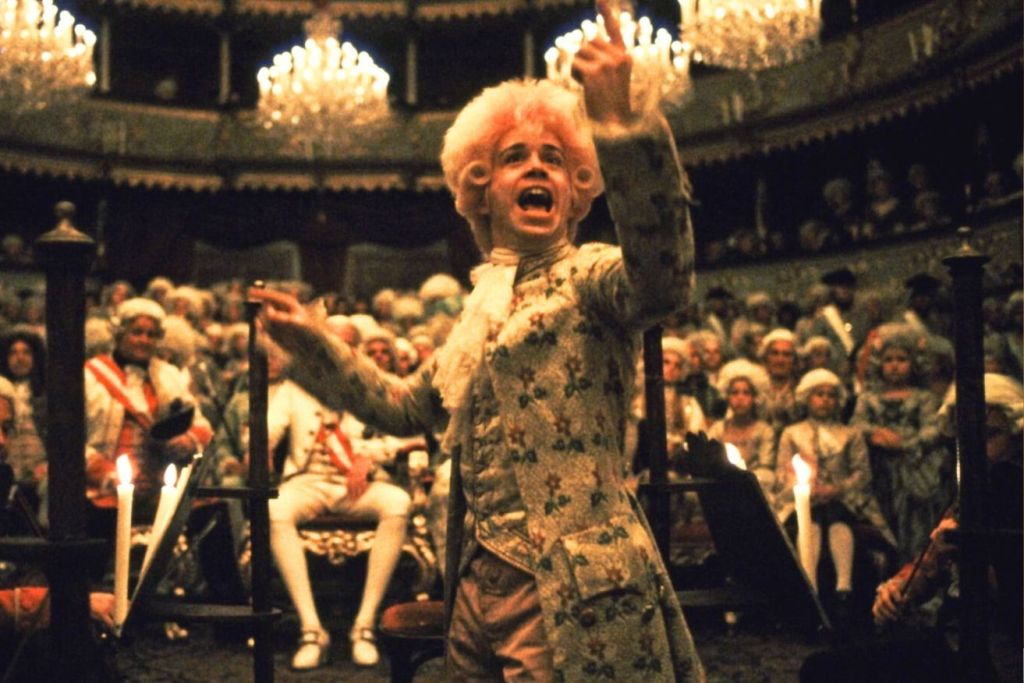Feeling short-changed watching Maestro and Tar? That’s OK, you’re not alone
Netflix
Tar and Maestro are both films that promised to give us deep insights into classical music, but in the end they were just reflections of flawed people.
There were two films on the big screen that brought great attention to the realm of Western art music in 2023 – Tár and Maestro.
And now both films are being viewed regularly on streaming service Netflix.
Ultimately, I do not care for either. Both films left me feeling short-changed. That’s because, although marketed as music movies, they really seem to have very little to do with music.
Let us first begin by agreeing that Bradley Cooper’s portrayal of Leonard Bernstein in Maestro is nothing short of incredible.
In some ways, it is even miraculous. Cooper’s ability to capture Bernstein’s physical appearance and mannerisms so accurately, particularly his voice and patterns of speech, is outstanding.
This only heightens as the character ages.
In other ways, Cooper is near-perfect. His re-enactment of Bernstein’s Resurrection at Ely Cathedral provokes a few overly excited gestures that misrepresent the master’s conducting technique but, in all fairness, the scene is lengthy and of the utmost difficulty and no actor could have managed it flawlessly.
Cooper is to be commended and he deserves to win the Oscar for Best Actor.
On the other hand, Cate Blanchett, as Lydia Tár, does not mount as nearly a musical performance as Cooper does. Her conducting is, at best, amateur and, at times, preposterous.
That said, Tár is the superior film. As a psychological drama, it holds my interest more so than the romantic biopic that is Maestro.
Director Todd Field’s attempts to bring awareness to many of the significant challenges currently plaguing music, too, should be congratulated.
But it is this preponderance for the extra-musical, I think, that stifles the success of both films.
In 1979, Peter Schaffer’s play Amadeus premiered at the National Theatre, London. By 1985, Miloš Forman’s film adaptation had won eight Academy Awards. Amadeus remains, in my opinion, the supreme achievement of all music movies.
Critics complain that Schaffer’s tale is overly stylised, eccentric in its characterisations and ahistorical in its presentation of the past.
These distortions, championed by Forman, are entirely intentional. In their flamboyance, they predispose the viewer to a kind of oversaturation that forces him to concentrate upon the film’s most realistic element – its music.
I do not just mean its soundtrack, even though that alone is exquisite. Sir Neville Marriner and the Academy of St Martin in the Fields won a Grammy for good reason.
Rather, I mean its music as a whole – the film’s depictions of what music is, how music is created and how music manifests in musicians’ minds. All aspiring musicians, especially composers, should study Amadeus.
Tár and Maestro, conversely, are far more interested in artists than they are in art. Of course, both films are works of fiction. Maestro likely takes exception to this prescription, while Tár possibly felt it offered a smattering of allegorical truths.
Recall, for instance, James Levine’s murky departure from the Metropolitan Opera. But whereas Levine left behind a mighty recording of Prokofiev’s Fifth with the Chicago Symphony Orchestra for Deutsche Grammophon, released in 1994, we never really experience the fruits of Lydia Tár’s labours.
The jagged rehearsal of Mahler’s Fifth tries too hard at sophistication. By focusing intently upon Tár’s attempts to shape the music rather than the music as it is shaped by Tár – yes, there exists a fundamental distinction, no matter how pedantic it may seem – the scene quickly becomes static.
Moreover, when Tár challenges a student’s views, she chooses to predominantly present her defence by way of an impassioned monologue. Fiddling with Bach’s C major Prelude, she obscures its sublimity with unrelenting commentary. No serious musician would employ this tactic for long – ears, not mouths, are understood to be the greater asset.
Tár does much to explain, but it seldom provides viewers with opportunities to listen. For this reason, the setting’s significance is lost, and whether Lydia Tár is a conductor or, in fact, a merchant banker battling corporate and personal intrigues seems of little consequence.
In this regard, Maestro suffers equally. Why explore Bernstein’s complex romantic relationships if not to subordinate those relationships to music. Why not portray music as the prime affair of Bernstein’s life? Here, I must tread more carefully.
Whereas Tár is outwardly fictitious, Maestro was produced with the blessing of the Bernstein family – who, at one point, found themselves having to defend Cooper’s use of a prosthetic nose.
To the extent of the Bernstein family’s involvement, I cannot be sure. What I do know is that I and many others who revere Bernstein the musician walked away from Maestro disenfranchised with, supposedly, Bernstein the person.
One also cannot help but think that Carey Mulligan, who offers her own tremendous performance as Felicia Montealegre, plays the film’s actual protagonist.

Music is the conduit between Salieri and Tom Hulce’s Mozart in Amadeus.
While this characterisation is equally true of F. Murray Abraham’s Salieri in Amadeus, it is music that serves as the principal conduit between Salieri and Tom Hulce’s Mozart – music that sets out the conflict and music that offers the resolution.
In Maestro, between Felicia and Lenny, that conduit is almost certainly sexuality. Thus, those who sought the film for its music, in so far as the term is defined above, are left disappointed.
The very real danger with both Tár and Maestro is that they normalise a pernicious attitude currently prevailing in our modern world: That the creator is greater than his creations and that the value of an artwork lies indissolubly within the identity of its artist.
This is true only in the biblical sense. Audiences do not flock to performances of Swan Lake because Tchaikovsky was a gay man, nor do they flock to productions of Die Walküre because Wagner was anti-semitic.
These composers’ high-quality artistic expressions transcend the particulars of their identities. It is for this reason that their work is remembered. Tár and Maestro, however, may not be works as well remembered as Amadeus.
Alexander Voltz is a Brisbane-based composer.
This article is republished from InReview under a Creative Commons licence. Read the original article.
InReview is an open access, non-profit arts and culture journalism project. Readers can support our work with a donation. Subscribe to InReview’s free weekly newsletter here.
![]()








